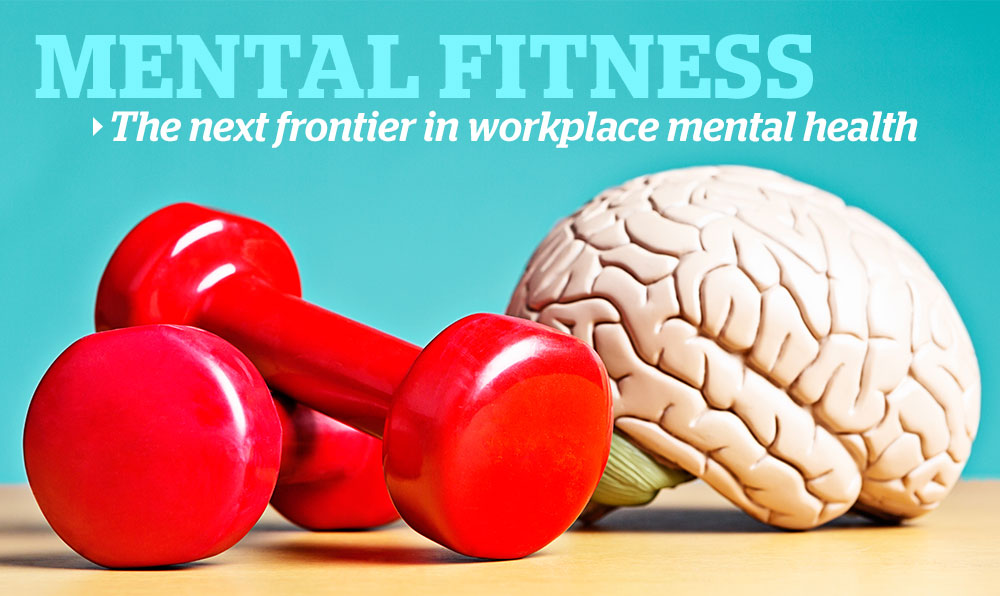

Columns/Blogs
Features
Features
Mental Health
PSWA
Embracing boredom a key step on mental fitness journey
By Bill Howatt

EDITOR’S NOTE: ‘Mental Fitness: The next frontier in workplace mental health’ is a weekly series, in partnership with Dr. Bill Howatt of Howatt HR Consulting in Ottawa. This series takes a deeper look at mental fitness — an approach to prevent mental harm and promote mental health.
“Allowing oneself to enjoy moments of boredom is a found gift.” — Dr. Bill Howatt
One researcher suggests that the mental state of boredom is the unfulfilled mind.
Many of us are conditioned when we enter this state to add stimuli or activity to avoid feeling bored. The goal of mental fitness is to intentionally do things to charge the mind so we can meet the demands we face or build up reserves for future challenges.
Boredom can be a helpful prosocial behaviour when the brain is allowed to relax and recharge.
Learning how to strategically and intentionally embrace moments of boredom can have a positive impact on your mental health.
Allowing oneself to be bored can create space for self-reflection that can shift personal goals into more fulfilling goals. Boredom can also improve self-control that impacts how well we regulate thoughts, emotions and behaviours.
This microskill of embracing boredom anchors the benefits of allowing yourself to be bored. It is critical for brain health that supports positive mental health.
Why this microskill matters
Most of us are faced daily with texts, emails and other digital communications that stimulate and drain our brain, often leaving us feeling mentally exhausted.
Allowing yourself to be bored and resist the urge for stimuli by sitting quietly is a proven scientific way to charge your brain.
A line of research suggests that allowing yourself to be bored can:
- improve social connections
- foster creativity.
Tips for using boredom
The world is moving so very fast for many.
Some wish we had more time. Learning to embrace boredom can help mature patience. Many prosocial habits such as exercise, diet and mental fitness plans can become boring.
Doing things that are good for us is not always exciting, but by using self-discipline and focusing on the outcome rather than the process, we can learn to embrace those moments when we would rather be doing something more stimulating.
The most successful people had to do things over and over to master them and often what separates them from others, who have not climbed the mountain they did, is navigating boredom.
They resisted the urge for instant gratification for their vision.
To develop mental health it is helpful to know that boredom does not have to be an emotion we run from.
Being aware of its benefits can help us decide to include a little more of it in our day-to-day lives.
- Become mindful of how the brain creates the mental state we call boredom: The brain does not have to be taught how to be bored. When you are experiencing boredom, your brain is craving stimulation. When this craving is not fulfilled, the by-product is feelings of frustration and lack of satisfaction.
- Some boredom is good – too much is pain: Be open to allowing some boredom and learning to be OK with it. However, too much boredom can become a negative. Embracing boredom means capturing found moments. For example, when sitting in a doctor’s office waiting for your name to be called, instead of scrolling through social media feeds, just sit and do nothing. Resist the urge for stimulation. Taking these found moments as a gift provides your brain with a chance to charge. Think of boredom in small amounts as simple prosocial micro-decisions for charging your mental battery.
- Convert moments of boredom into mindfulness: When you feel bored, instead of fighting it, allow it in and notice what is around you. This can help bring you to the here and now, which facilitates mindfulness. There is ample evidence that mindfulness is good for your mental health. It can create mental space to learn to be more aware and grateful for what you have. It can allow you to get off the treadmill of life to enjoy a moment without any agenda or outcome other than being present in that moment.
 Dr. Bill Howatt is the Ottawa-based president of Howatt HR Consulting and the former Chief of Research and Workforce Productivity at The Conference Board of Canada.
Dr. Bill Howatt is the Ottawa-based president of Howatt HR Consulting and the former Chief of Research and Workforce Productivity at The Conference Board of Canada.
If there is a particular microskill or topic you would like to see Dr. Howatt write on that supports employees’ mental health in the workplace, please send your request to Talent Canada editor Marcel Vander Wier.
Print this page